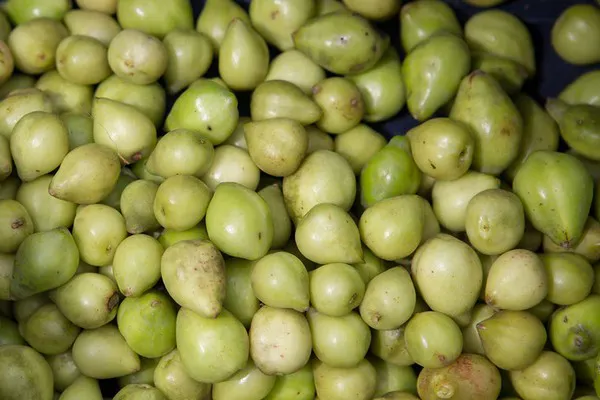A native bush food has proven to be a promising natural alternative to synthetic chemicals used to preserve meat, according to University of Queensland research. Queensland Alliance for Agriculture and Food Innovation PhD scholar Michel Beya said the Kakadu plum's high antioxidant and antimicrobial properties make it the perfect candidate for a plant-based preservative to extend the shelf life of meat.
"The extraordinarily high vitamin C content of the fruit, which is one of nature's most potent antioxidants, offers powerful preservation qualities," Mr Beya said. "It works by inhibiting the growth of bacteria and prevents the oxidation of meat products."
Mr Beya, who worked with the Centre for Uniquely Australian Foods on the project, said consumers are increasingly concerned about how meat is preserved because of health, environmental and ethical considerations. "Traditionally, chemical preservatives like sodium metabisulphite, sodium nitrate and nitrate have been used to prevent the growth of bacteria or rancidity in meat products," he said. "But research linking these chemicals to health risks like cancer and heart disease have led to public apprehension. There's also growing interest in sustainable and ethical food production practices, raising questions about the environmental impact of chemical preservatives and the treatment of animals in the food chain."

Mr Beya said Kakadu plum is a chemical-free alternative with antimicrobial properties, which makes it a sustainable and effective choice for preservation. "Our results show beef patties preserved with Kakadu plum had a significant reduction in rancidity rates as well as inhibiting microbial growth more effectively than samples without preservatives," he said. "What's more, including Kakadu plum in the recipe does not affect the taste of the meat."
Kakadu plum is a tree, prevalent in northern Australia and wild harvested. Its small, green fruit has been consumed for its nutritional and therapeutic value by Indigenous Australians for thousands of years.
Source: uq.edu.au
